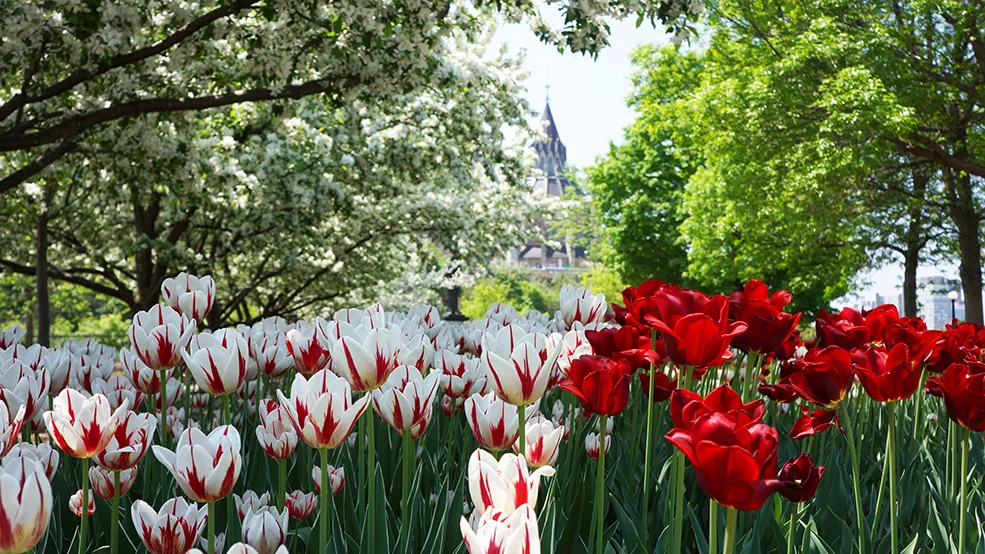At the Calgary Olympics in 1988, a young woman dressed in a bright pink costume stood on the ice, alone. The crowd settled to a hush, as a Canadian concerto played, and the figure skating routine of her life began.
The day before the competition Elizabeth Manley had been feeling awful, struck down with a bad case of flu. She took the day off and weighed up her options. She was already feeling like success was a long shot after battling her way back from a diagnosis of depression and burnout six years before.
To her surprise, as she practiced on the ice, the entire Canadian hockey team came to watch. Afterward, she asked their coach why they were there, and he explained that he wanted them to “come watch a champion.” It was just the words of support and encouragement she needed to power through. That decision turned out to be one of the most important turning points in Manley’s life, and she went on to win silver and become a Canadian sporting hero.
Manley is especially loved in her hometown of Ottawa, a city she describes as unmatched in beauty. “I have travelled the world and Ottawa is on the top of my list as one of the most beautiful cities in the world and I am so proud to be Ottawa’s sweetheart,” she says.
In addition to her Olympic silver medal, she also won silver in the World Championships and was inducted to the Canadian Olympic Hall of Fame, the Skate Canada Hall of Fame and Canada’s Sports Hall of Fame.
Her mental health struggles
Despite all her success, her ascent to sporting excellence was far from easy. Prior to the Olympics her teenage years were spent training at an elite level and included having to move away to attend a training camp. The enormous pressure was both physically and mentally taxing and began to take a toll on the young girl from Ottawa.
Manley was eventually found to be experiencing both depression and anxiety. “At 16 years old I was diagnosed as having a nervous breakdown,” she says. This led to her losing her hair and feeling as though she wouldn’t ever be able to skate competitively again. A hard blow for someone who says, “Skating was my life, my passion, my love.” Along with the incredibly difficult symptoms she experienced, Manley also suffered from the stigma of mental health, which she says was particularly rife in the 1980s.
Ottawa offers hometown support
After this breakdown, her hometown ended up providing the opportunity for her to recover when a local Ottawa psychologist offered her free therapy. That wasn’t the only way the city rallied around Manley. She was also gifted with free ice time, leased a car to help her to get to practices and the city even had a Zamboni smooth the ice on the Dow’s Lake section of the frozen Rideau Canal so that she could skate when indoor rinks were unavailable. “Ottawa stepped in and did everything to help my dreams come true,” she says.
These practical offers of help were transformative in enabling her to return to competition-level fitness, but it was also the community support that really gave her the confidence to try again.
She went from feeling that she had let down her whole country, her family and friends and the entire skating community to regaining her motivation and finding the courage to compete in the Calgary Olympics.
Ottawa’s girl
It’s no wonder then that the mutual respect between Ottawa, its citizens and Manley has led her to adopt the moniker, “Ottawa’s girl.”
As the recipient of the Order of Canada, a sports commentator and a mental health advocate, Manley continues to make Ottawa proud as evidenced by a local park and arena both bearing her name, which she describes as “such an honour.”
As she moves into a new chapter of her life as a motivational life coach and executive coach, Manley is so happy to be back in Ottawa in the city she loves.
It’s safe to say the feeling is mutual!
You don’t have to be a figure skater to enjoy ice skating in Canada’s capital! Read about Ottawa’s best ice skating experiences.





